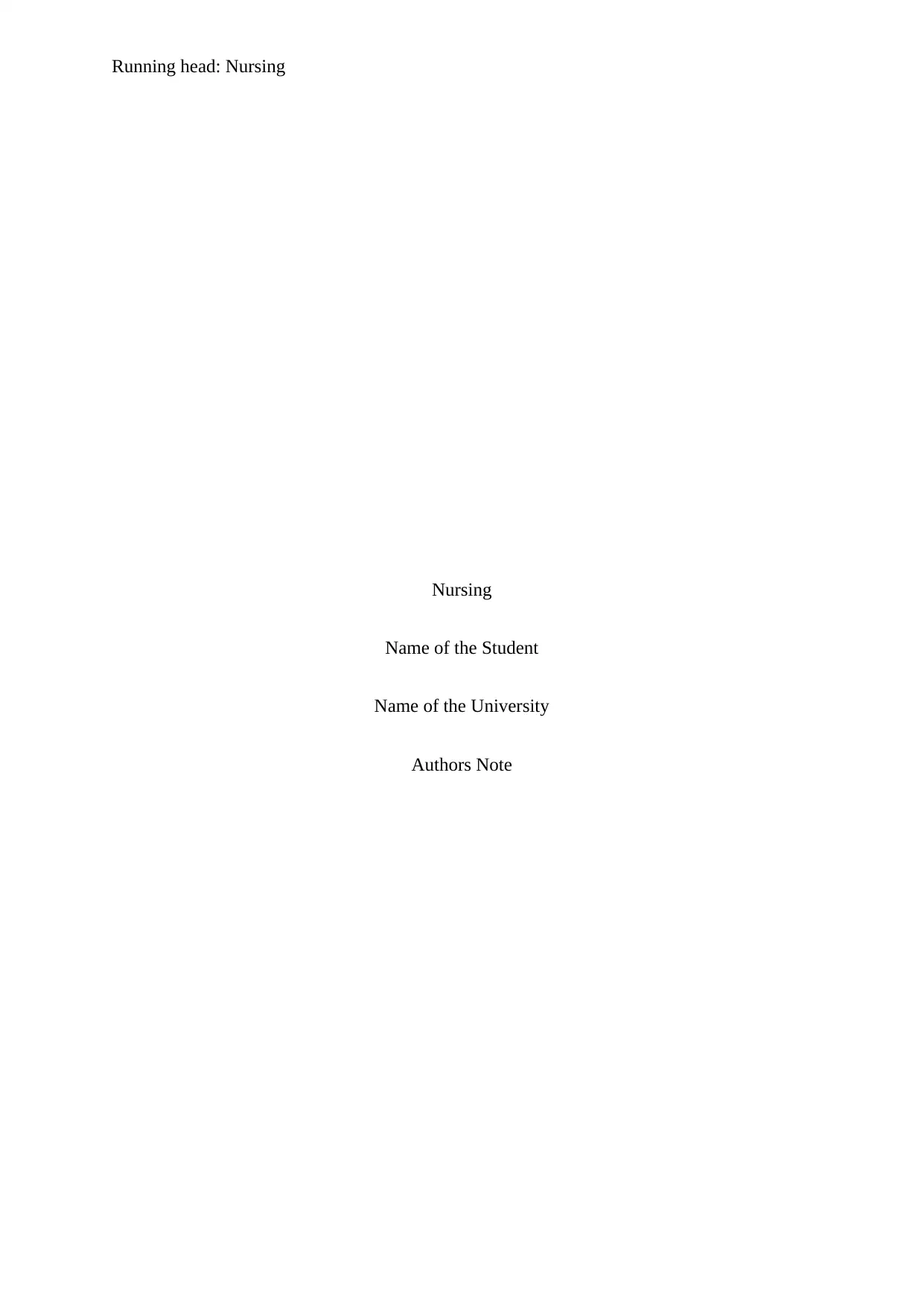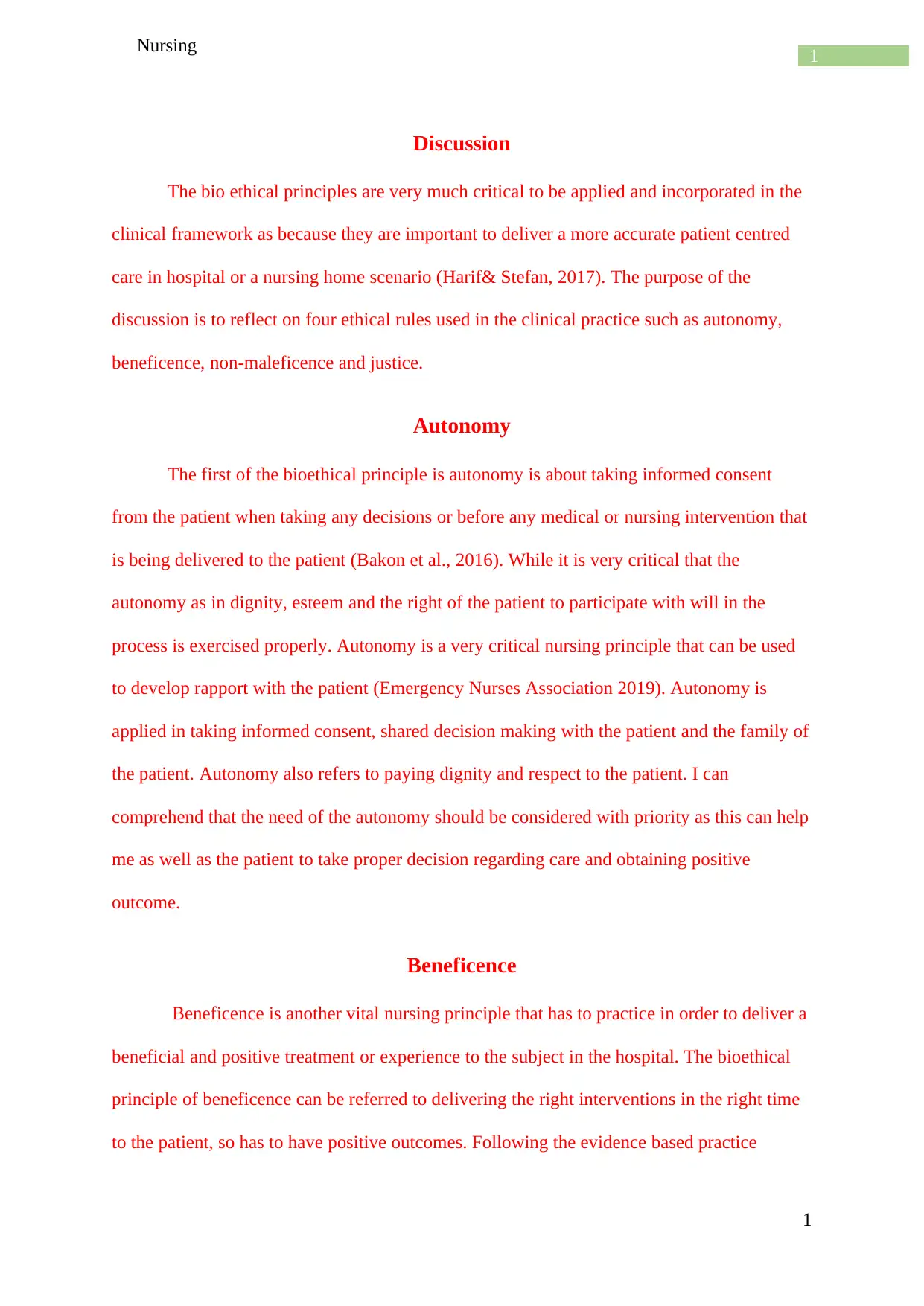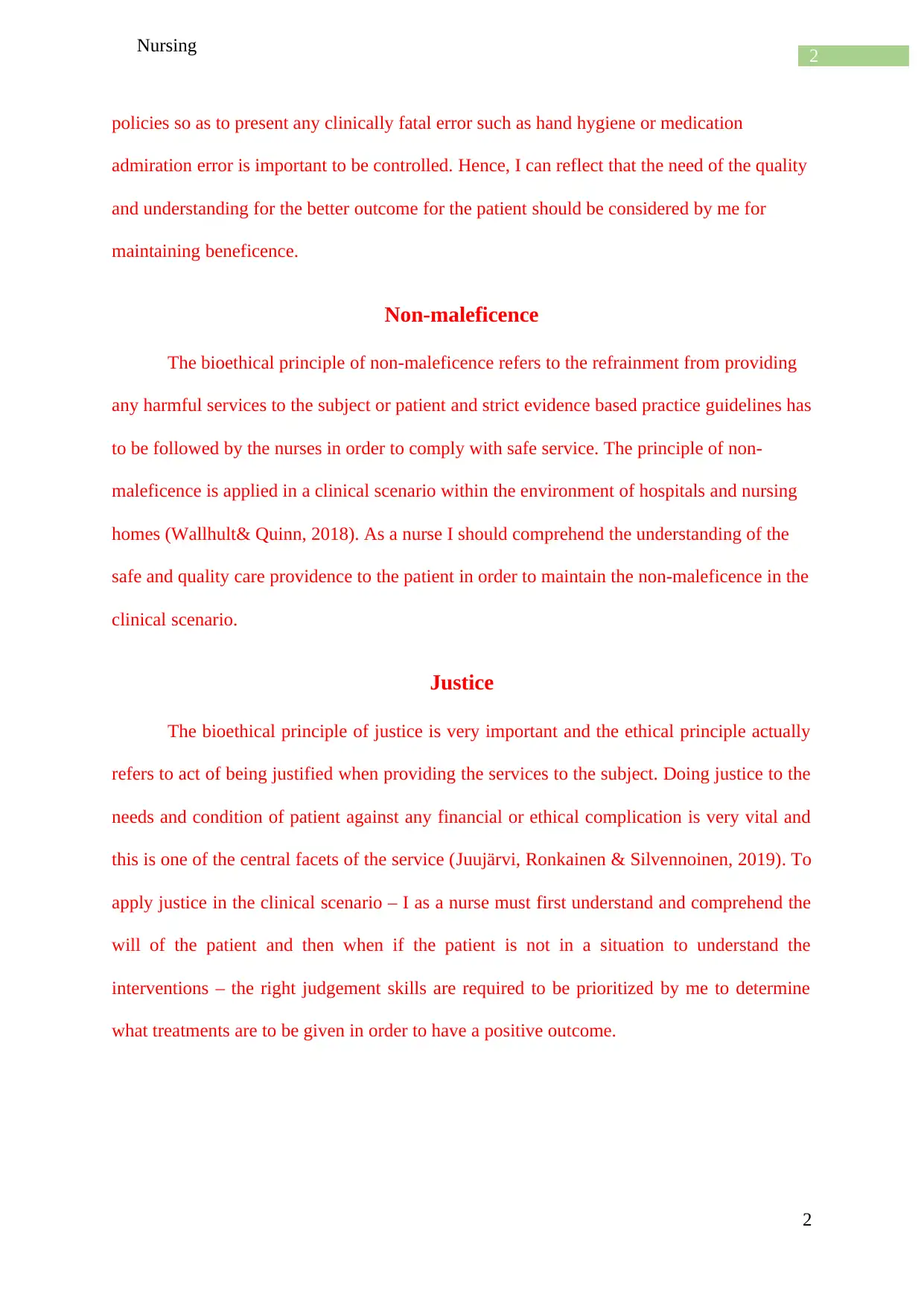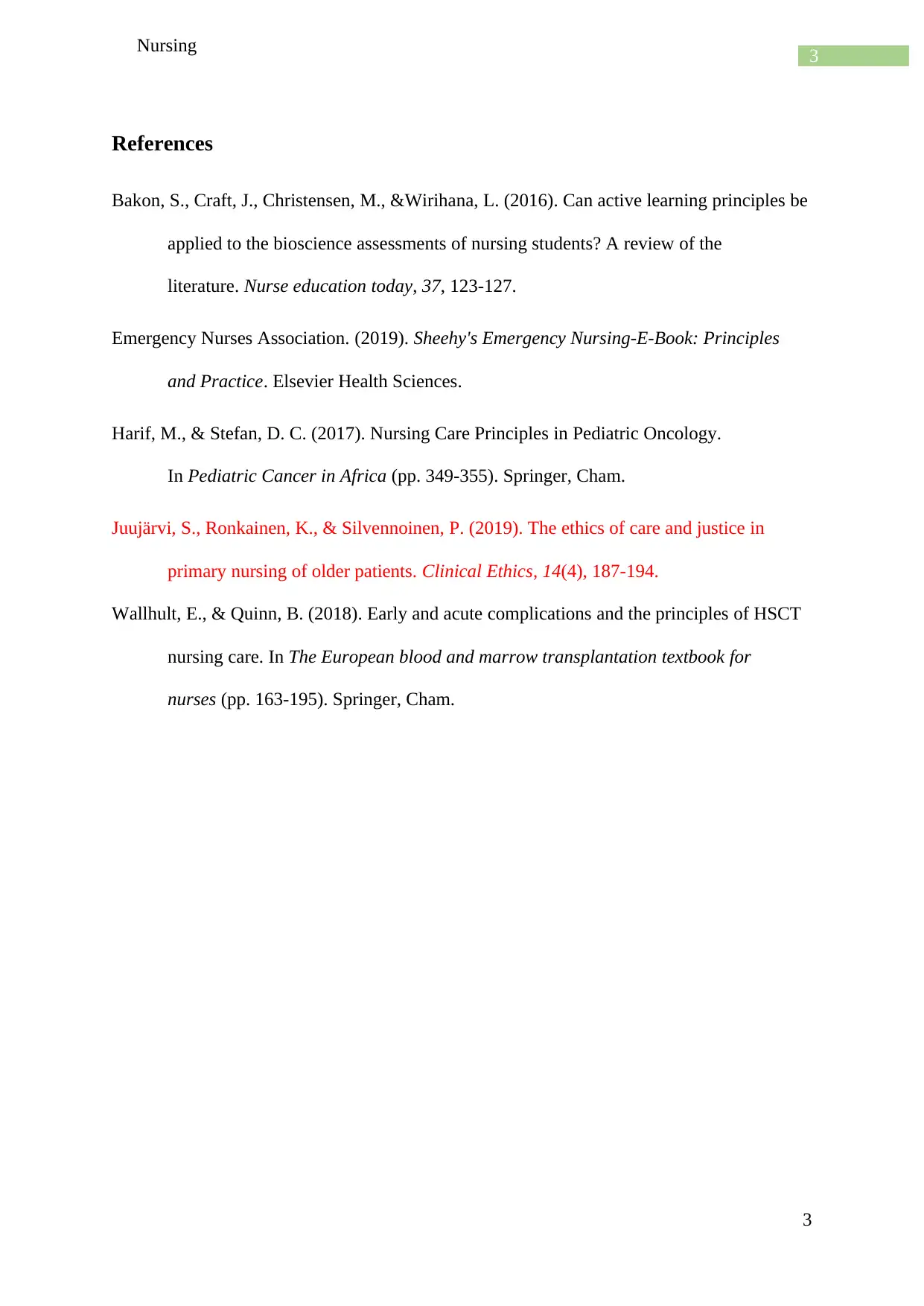University Nursing Discussion: Bioethical Principles in Healthcare
VerifiedAdded on 2022/08/14
|4
|787
|148
Discussion Board Post
AI Summary
This discussion post delves into the critical application of bioethical principles in healthcare, focusing on autonomy, beneficence, non-maleficence, and justice. The author reflects on how these principles guide clinical practice, particularly in nursing, to ensure patient-centered care. Autonomy is discussed in terms of informed consent and patient dignity. Beneficence emphasizes delivering beneficial treatments and adhering to evidence-based practices. Non-maleficence highlights the importance of avoiding harm through safe practices. Justice underscores the need for fair treatment and equitable resource allocation. The post references key literature to support the practical application of these principles, emphasizing their role in ethical decision-making and positive patient outcomes.
1 out of 4











![[object Object]](/_next/static/media/star-bottom.7253800d.svg)